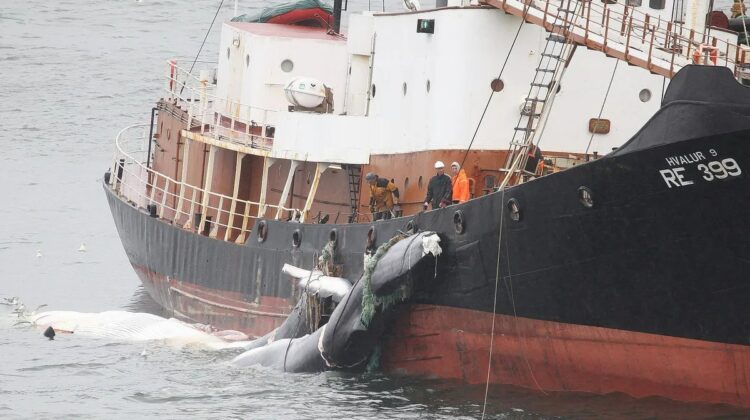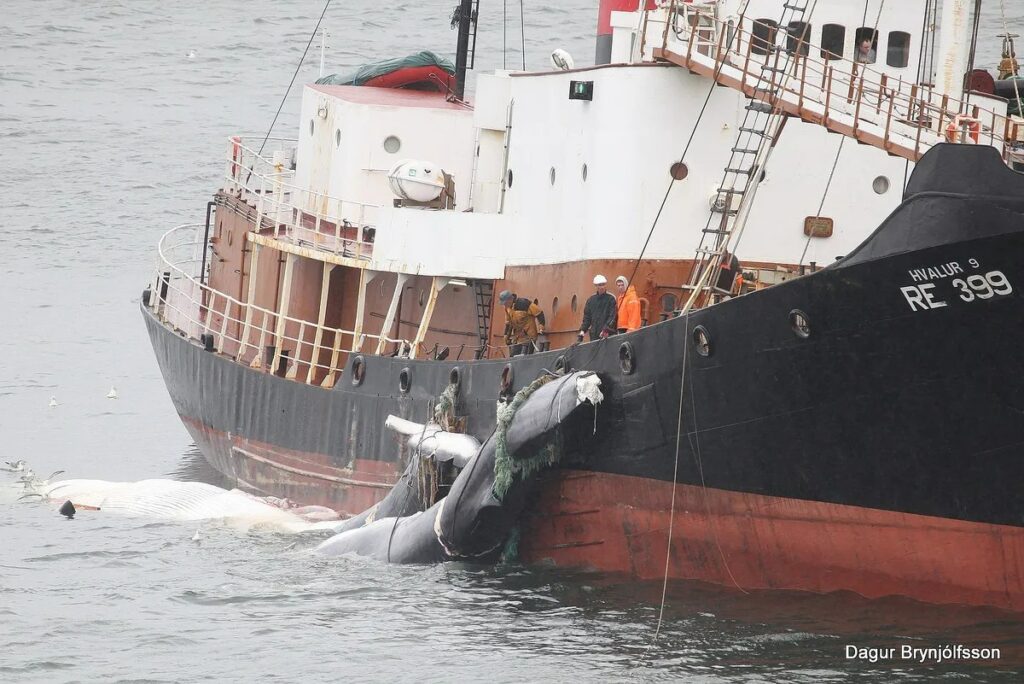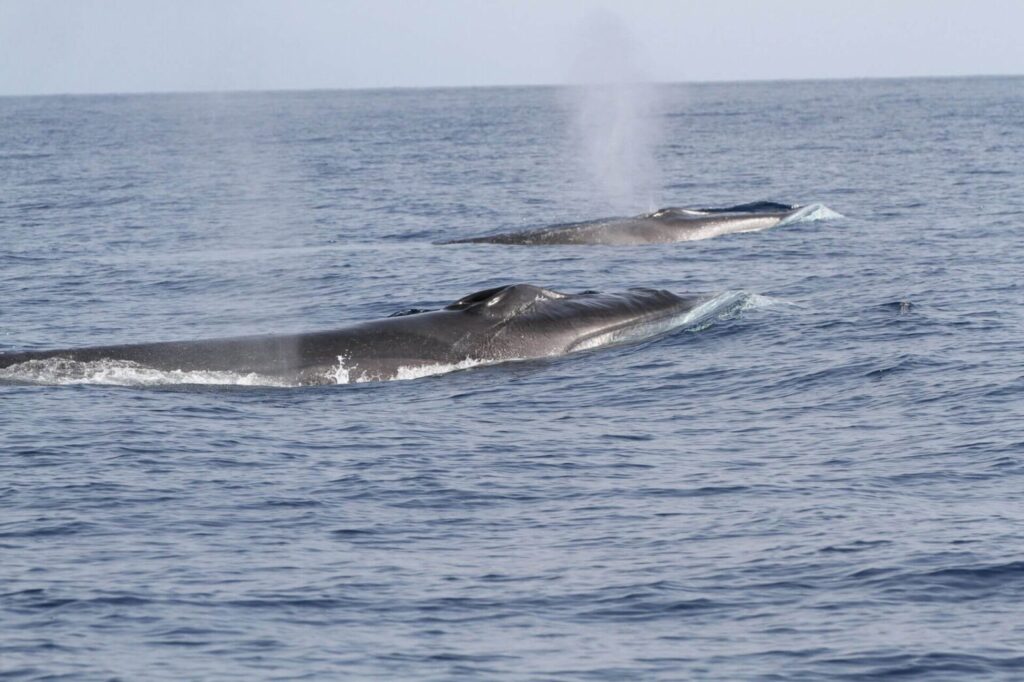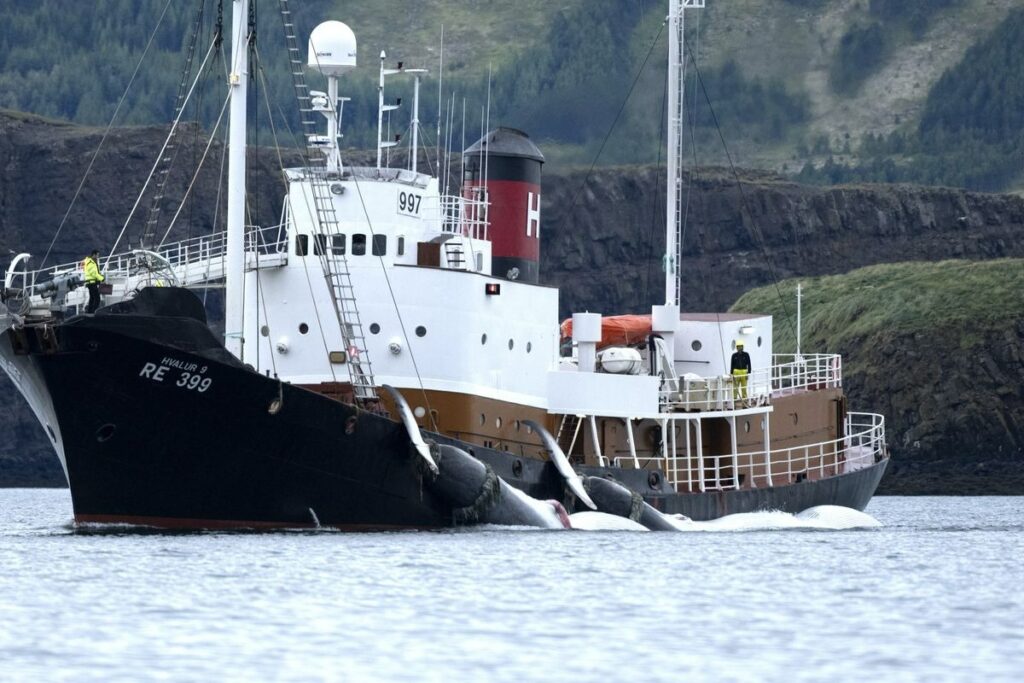
Iceland’s dying whaling industry clings to life for another hunting season.
In a surprising and controversial decision, Iceland has announced it will continue its whaling practices. The Icelandic government revealed today that Hvalur hf., the nation’s last whaling company, will receive an annual permit to hunt 99 fin whales in the Greenland/West Iceland region, along with an additional 29 in the East Iceland/Faroe Islands region.
Despite the total quota of 128 fin whales, the focus remains on the 99 whales in the Greenland/West Iceland region, as the East Iceland/Faroe Islands quota has not been historically targeted.
“The world has been watching Iceland, hoping for a decisive end to whaling. While the numbers are reduced, the decision to kill 99 more whales is baffling,” commented Patrick Ramage, Director of the International Fund for Animal Welfare (IFAW), in a statement to us.

“It’s hard to fathom how and why this green light to kill 99 fin whales is being given,” added Ramage.
Fin whales, the second-largest animal on Earth after blue whales, can reach up to 25 meters (85 feet) in length and live up to 90 years. They are found in oceans worldwide, making their continued hunting particularly contentious.
Despite the backlash from conservationists, some suggest this reduced quota might not be the worst outcome.
“A small quota might be a necessary evil. The whaling law allows for a potential carryover of the original 264-whale quota into the next season if rejected. Tactically, a smaller quota could benefit the whales,” explained Sharon Livermore, Marine Conservation Program Director at IFAW, to IFLScience.
“With the whaling laws under review, due this October, this could be a strategic step towards ending commercial whaling in Iceland once and for all,” Livermore added.
In June 2023, Icelandic authorities halted the whaling season just a day before its start, suspending fin whale hunting until the end of summer. This sudden decision followed a damning report by the Icelandic Food and Veterinary Authority, which highlighted the prolonged suffering and potential legal violations in whaling practices.

The ban was lifted late in the season in August, resulting in the death of only 24 fin whales by Hvalur hf. Many hoped that this June, the Icelandic government would deny the reissuance of Hvalur hf.’s license, signaling an end to this dwindling industry.
Yet, that was not to be.
“The whaling issue in Iceland is about power. Kristján Loftsson, who runs Hvalur hf., wields significant influence and wealth. This is the crux of why commercial whaling persists,” Livermore explained.
Public opinion in Iceland has been shifting. A recent survey revealed that 51 percent of Icelanders oppose the hunt, with only 29 percent in favor. Support is highest among those over 60, while those aged 18 to 29 are most opposed. Moreover, the demand for whale meat has been steadily declining.
Given this changing sentiment, many are hopeful that Iceland will soon enact stricter laws to ban whaling. However, nothing is certain.

“Globally, commercial whaling is banned. Although Iceland has an exemption from the moratorium, it remains an illegal activity worldwide. There are numerous reasons, both ethical and reputational, for Iceland to enforce a domestic ban on whaling,” Livermore concluded.
The world waits with bated breath, hoping for a future where these magnificent creatures are no longer hunted in Icelandic waters.

Leave a Reply